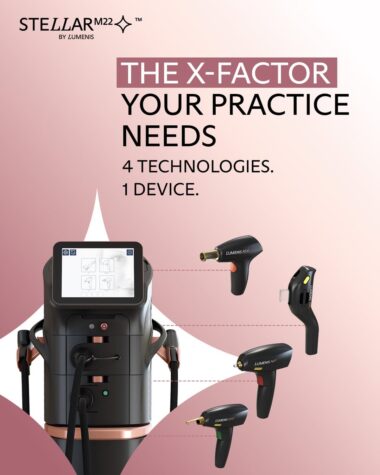Rugby league titan, Wally Lewis AM will today be joined by a 20-strong delegation of people living with probable CTE, (chronic traumatic encephalopathy – a form of dementia) carers and researchers who will meet with parliamentarians in Canberra to share their experience of CTE.
“You only get one brain,” Mr Lewis said.
“I’m sharing my experience of living with probable CTE and proudly working with the Concussion and CTE Coalition, calling for the Federal Government to fund support services and a national awareness and education program.
“We need to teach the players from the grassroots level to play the game more safely and we need to equip the parents and teachers around them with the confidence and information they need to support our kids. It’s the subconcussion risk that needs to change as much as concussion.
“We have come a long way since back when I played, but I think we still have a long way to go.”
The delegation representatives from Sydney, Newcastle and Canberra will share their experiences as they attend meetings and events at Parliament House, all wearing bright, orange t-shirts emblazoned with the message – You only get one brain.
“We are passionate about raising awareness with all politicians and advocating for change to help others – for now and for future generations,” Kayleen Doyle, delegation representative and Founder and Director, Connecters Australia said.
The Concussion and CTE Coalition (Dementia Australia; Brain Foundation; Connecters Australia; Queensland Brain Institute, The University of Queensland and Dr Rowena Mobbs, Mater Hospital Sydney) have developed a joint Position Statement and have called for federal support in the May budget.
In a pre-budget submission the Coalition is calling for a national program of support services for people impacted by CTE and a national awareness raising and education program in schools to protect the brains of Australian children.
Carl Cincinnato, Brain Foundation said a national awareness and education program was needed in our schools to increase awareness and understanding about concussion, CTE and brain health.
“Teachers and parents must have access to reliable information and resources, ensuring they feel well-equipped, supported, and confident in making decisions regarding the brain health of Australian children,” Mr Cincinnato said.
Maree McCabe AM, CEO Dementia Australia said the Coalition budget priorities were developed as a response to some of the recommendations in the Senate Inquiry report, ‘Concussions and repeated head trauma in contact sports’ handed down in September last year.
“It’s not just a sports issue. There are several different populations at risk of CTE, including domestic and family violence survivors, and military personnel.
“People impacted by CTE tell us there isn’t enough support available, so we are calling for the Federal Government to back a national support program,” Ms McCabe said.
Dr Rowena Mobbs, Mater Hospital Sydney, said participants in an existing support group program, Concussion Connect in Sydney, have described it as transformative.
“The Concussion Connect model could be introduced nationally with funding support,” Dr Mobbs said.
“Participants report feeling their concerns are validated and they enable social connections for families to share experiences and support each other.
“Research into this new model of care will be led by the Queensland Brain Institute, University of Queensland.”
Robin McGilligan, a delegation representative who is living with probable CTE and Australian CTE Biobank Ambassador said Concussion Connect has been totally life changing for him.
“Until I attended the group, I had been incredibly embarrassed and ashamed of what was happening to me,” Mr McGilligan said.
“I knew that these people understood what I was saying, and they were so super supportive.The whole experience was incredibly powerful and immensely healing.”
At a Parliamentary Friends of Dementia event which will be attended by parliamentarians and sector stakeholders in Parliament House today Wally Lewis will be joined in a panel discussion by Mr McGilligan and Dementia Australia Dementia Advocate Lynn McGregor to be facilitated by Dementia Australia Ambassador and acclaimed sports journalist Pat Welsh.
“The Concussion and CTE Coalition is honoured to have Wally’s support of the advocacy campaign. Whilst already acknowledged as a Connecters Australia Ambassador, I am honoured to announce him as Dementia Australia’s newest Ambassador,” Ms McCabe said.
“As Wally said, we only get one brain and so as a nation we need to do all we can to increase awareness and reduce the incidence and impact of CTE.”
Chronic traumatic encephalopathy (CTE) is a type of dementia that was first identified in 1928, when a group of boxers were described as having ‘punch drunk syndrome’, also referred to as ‘dementia pugilistica’. The condition can be provisionally diagnosed by clinicians but can only be definitively confirmed by tissue examination after death. CTE may affect brain function over time and can result in changes in mood, personality, behaviour, and cognitive function. Research has identified an increasingly strong causal link between repeated head injuries and chronic traumatic encephalopathy.
For support and information please contact the National Dementia Helpline 1800 100 500, dementia.org.au; Brain Foundation brainfoundation.org.au; Connecters Australia connecters.org.au.
-Ends-
Media contacts: Gabrielle Prabhu 0403 177 154 | [email protected];
Christine Bolt 0400 004 553 | [email protected]
When talking or writing about dementia please refer to Dementia-Friendly Language Guidelines.
Further Notes: Australian CTE Biobank’s mission is to understand CTE, a younger-onset dementia, with the aim of creating precision medicine approaches, transformative research, and community translation programs that will benefit individuals and their families.
The Australian CTE Biobank was founded by Macquarie University in 2022, with biological samples being housed at the NSW Statewide Biobank. Samples are collected annually from patients who are participating in the Australian CTE Biobanking project.

